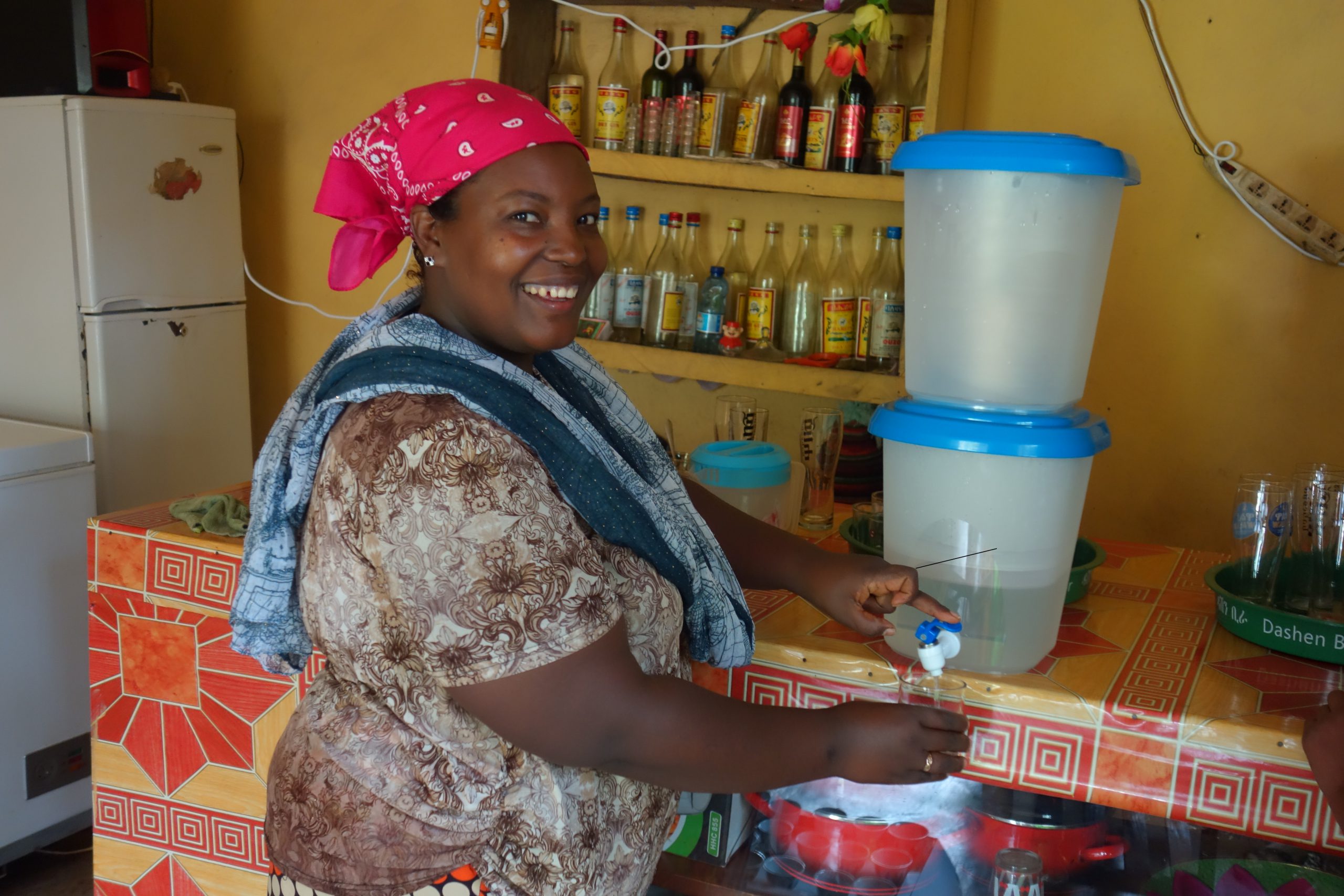Women in business are few. And women entrepreneurs are even more underrepresented in the water and sanitation economy. This triggered me to dedicate my bachelor thesis to research what limits women and why they are discouraged to become water and sanitation entrepreneurs. In many cases they step out of their businesses after a while. Since my research focused on water and sanitation entrepreneurship, a specific geographical focus was not required. But due to the short time span available (5 months), I limited it to two countries (Ethiopia and Brazil) and had a relatively small sample size comprising 16 women entrepreneurs and five organisations.
Maria and Hermela’s stories show the most common challenges faced by women entrepreneurs and explains in what way their socioeconomic background and family play a role.
Two stories, similar challenges
Maria was born into a middle-class family in Fortaleza, Brazil. After graduating from high school, she studied hydrology at the university. Encouraged by her professor, she developed water filter systems while still studying. Then she decided to start a business. With financial support from her family, she created prototypes. Maria wanted to get more than profit out of her business: She strove to have a positive impact on the lives of the most vulnerable population groups. She, therefore, accepted the fact that she will not get much financial return, especially at the beginning. Maria soon realised that she lacked knowledge on how to run a business so she took training on business management. After a while, she needed more capital to grow her business. As her family could not finance her, Maria looked for funds. Since her business idea was not proven, financiers were hesitant to provide capital. She realised she did not have a big network to support her. Despite these constraints, Maria managed to grow her business and started getting revenue and hiring personnel. Next to the business, she wanted to start a family. But as the business fully relied on her, she was confronted with the dilemma of deciding between a family or her business. She was under social pressure, especially from her family that expected children from her. At the end, Maria decided to prioritise family life and stopped all business-related activities for some months in 2020. This long break will bring challenges to her business. At the moment, it is uncertain when Maria can go back to work again.
Hermela grew up in a small village in rural Ethiopia. She dropped school when she was 14 as her family needed additional income. While working in a local shop, she noticed an increasing demand for clean water, which she saw as an opportunity to earn money. Hermela decided to sell water filters in her village but needed seed capital. Her family could not lend her money and demanded her help for house chores when she was not working. As a woman in rural Ethiopia, Hermela did not have any property or education to make her credit-worthy in the eyes of the few financial institutions in her area. Her father refused to be her guarantor. The family sees this business as a high-risk investment because generating revenues is not guaranteed.
Women entrepreneurs need support and access to finance
Despite living more than 10,500 km apart, Hermela and Maria faced similar challenges and could benefit from comparable forms of support. They identified a business opportunity in selling water filters in their communities. But their motivations for becoming women entrepreneurs were not identical. With higher education and a better economic family situation, Maria wanted to create social change with her business. Hermela wanted to generate income to support her family. Their motivations did coincide in wanting to gain independence by owning a business.
Hermela and Maria were driven and passionate about becoming successful entrepreneurs, but both had to leave their dreams behind after a while.
When talking to women entrepreneurs and the representatives of water organisations, it became clear that external funding is critical for success. Access to finance reduces dependency on the family and limits the impact of the socioeconomic background. Family support is often provided as (financial) resources and time. When the business demands more than what is available at family level, external support is needed to grow the business. Training on business and/or technical matters is also crucial for running a business. This affects even highly-educated women entrepreneurs.
These research findings hint at the need for an initiative focusing on women entrepreneurs in water and sanitation. Not only should such an initiative provide training and financial support, but also take into account gender inequalities, levels of women’s empowerment and family obligations that reduce women’s availability to focus on their business. In many societies, women are expected to start a family when they reach a certain age, which makes it harder to simultaneously run a business. To overcome this, it is important that their water and sanitation enterprises have a sustainable model that allows women to step off temporarily, or to combine running a business with family life. Without access to resources, education and a support network, efforts to promote female leadership in water and sanitation entrepreneurship may have little effect.
Katharina Götz was a Programme Intern for Aqua for All from January to June 2020. During her internship, she researched women entrepreneurship in water and sanitation for her bachelor thesis as part of her project and change management study. This blog is a summary of her findings.
